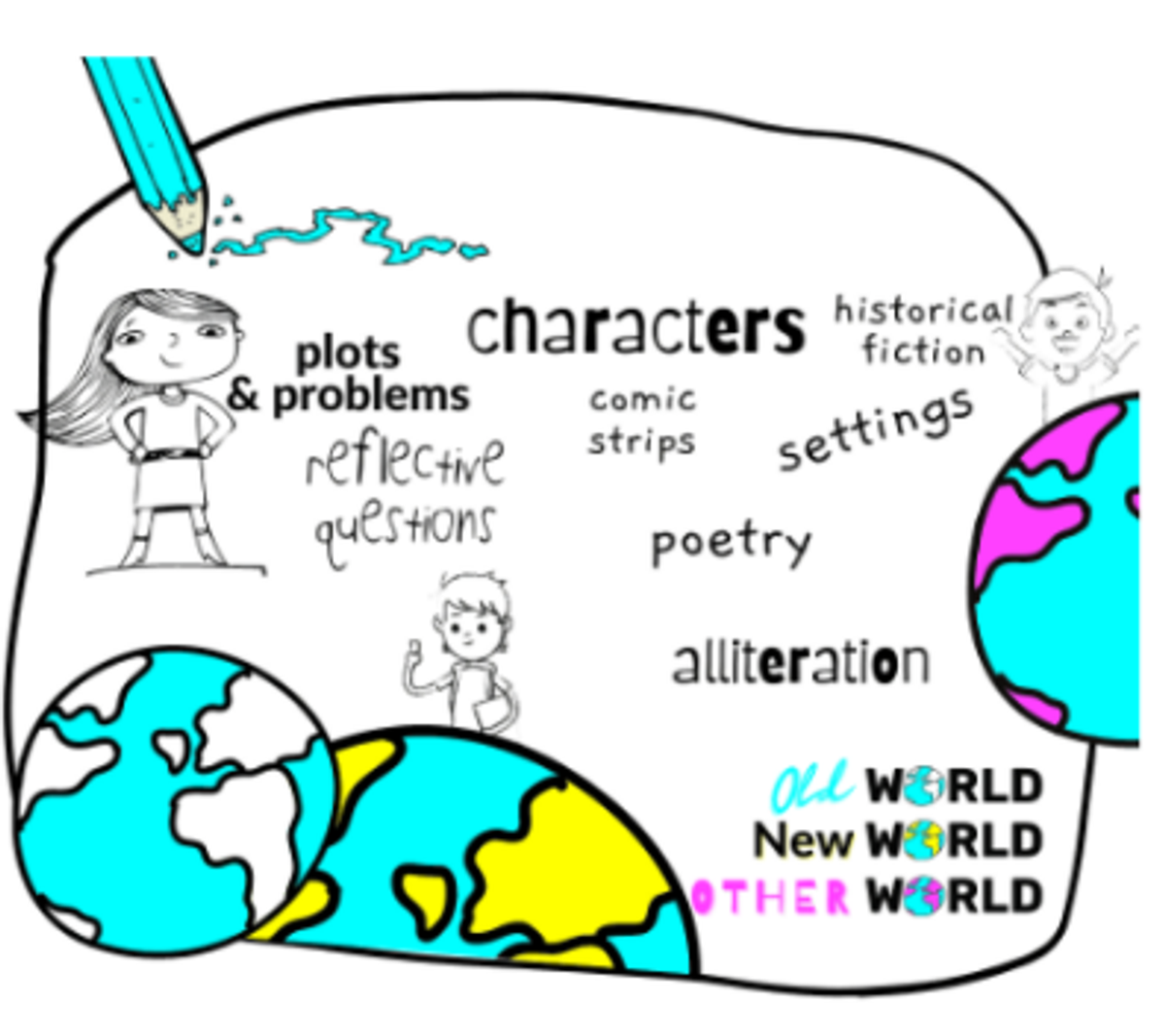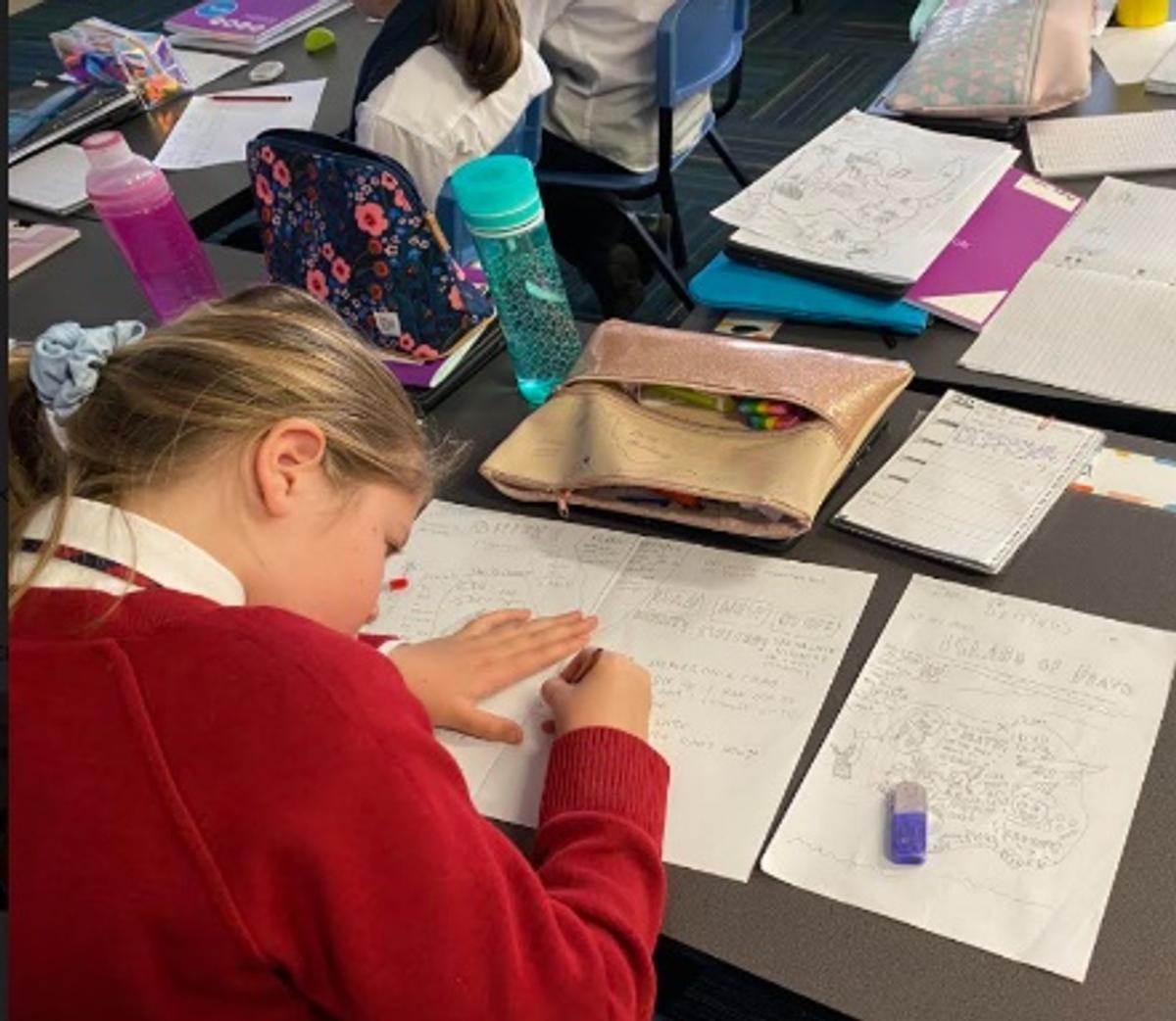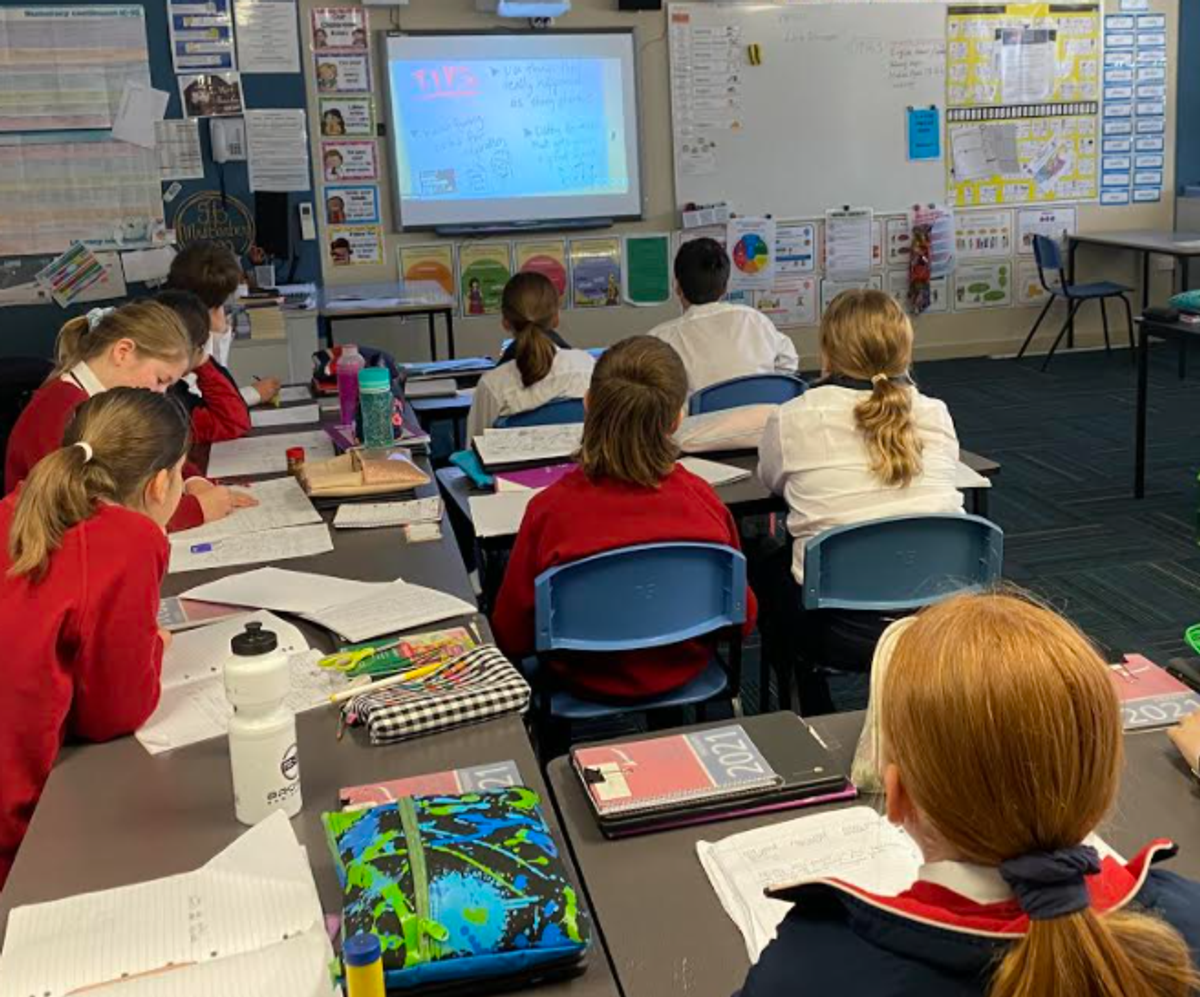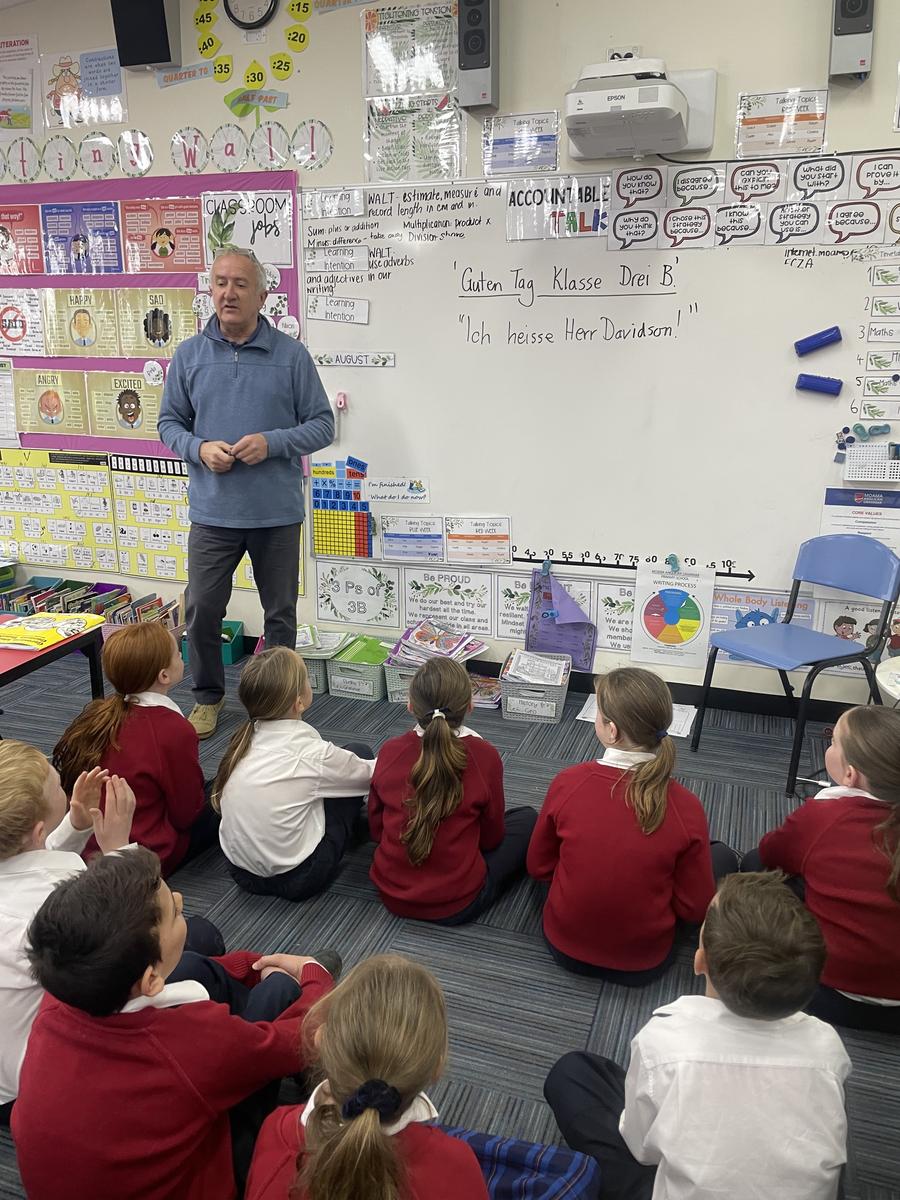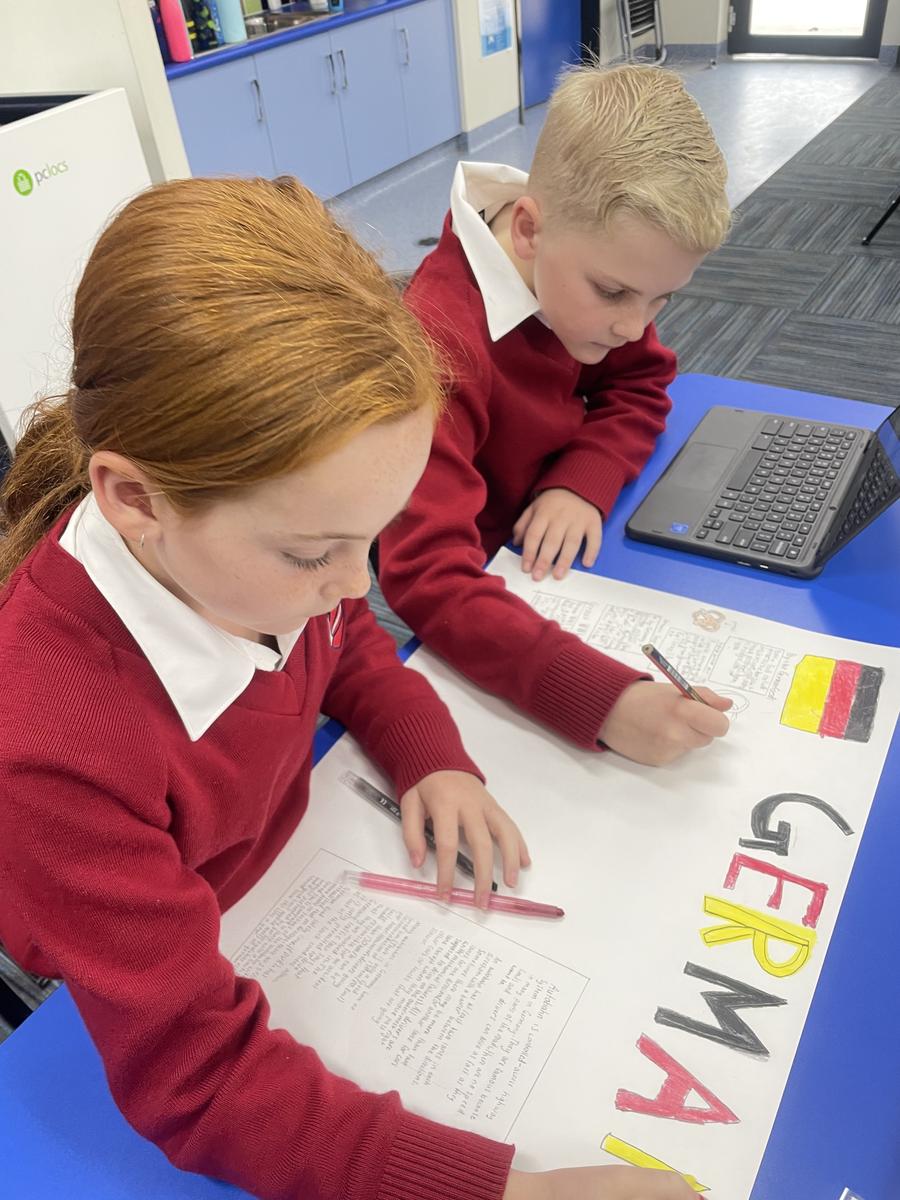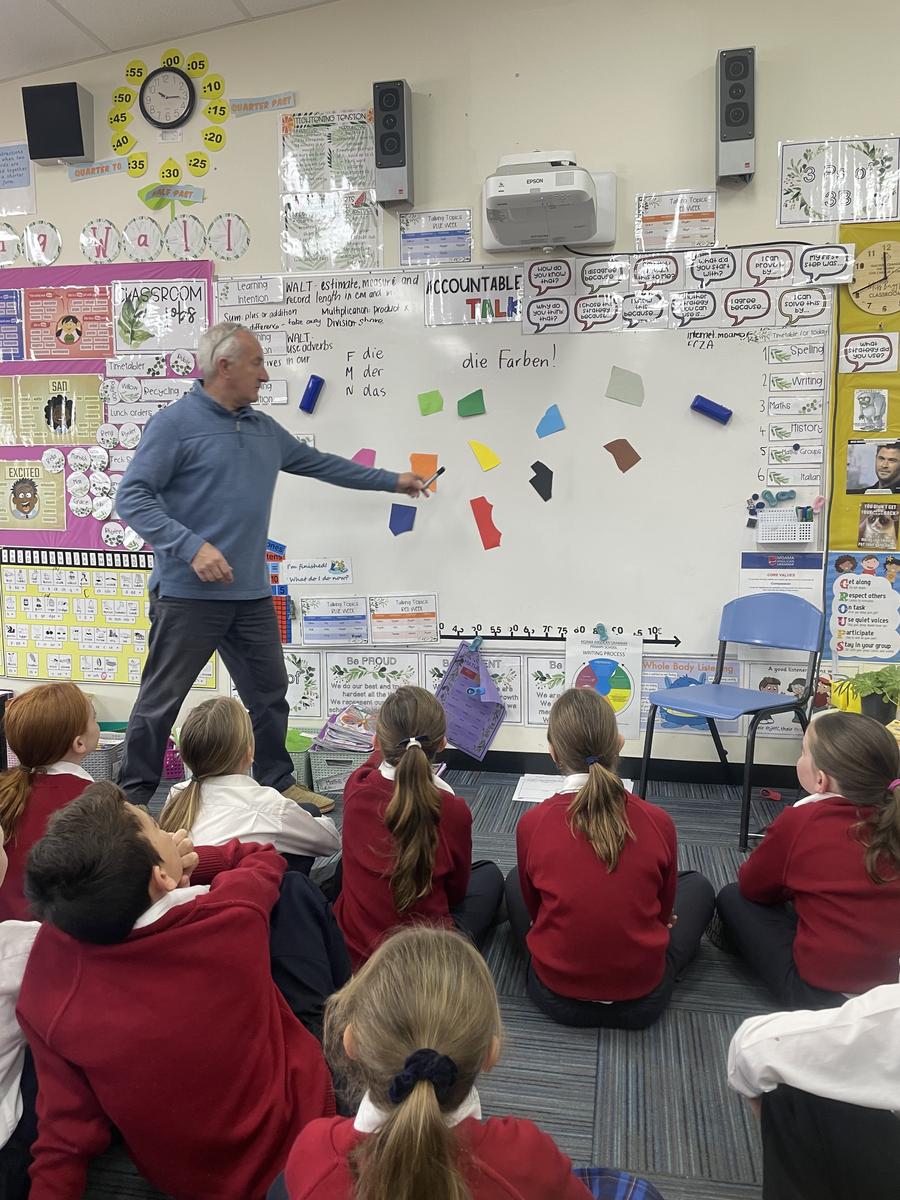Primary

From the Primary Office
As we reflect on the last couple of weeks, we cannot ignore the dedication and hard work, shown by all our Primary staff in providing exciting Deep Learning opportunities about the Olympics for all our Primary students. On the first day this term, our staff took part in a virtual zoom PD with our supporting AIS consultant Jennifer Woods who runs the professional staff development around Deep Learning.
Deep Learning is the study by Michael Fullan, Joanne Quinn and Joanne McEachen focusing on six Global Competencies which are: Character, Collaboration, Citizenship, Communication, Creativity and Critical Thinking. These competencies describe the skills and attributes needed for learners to flourish as citizens of the world and encompass compassion, empathy, socio- economic learning, entrepreneurialism, and related skills for functioning in a complex universe. We want our Moama Anglican Grammar students to be prepared to make external connections to the world. Staff and students will be using learning progressions to assess and measure Deep Learning Competencies.
The School’s focus areas are; Citizenship and Collaboration and these will be further explored as the year progresses.
Bridge Crossing and Pick-Up Arrangements
We have received several enquiries from families requesting a formal letter from the school, to enable them to cross the border during pick up and drop off times. We have been advised that no formal letter is required to cross the border. A verbal explanation on why you are crossing suffices at the moment. Should this advice change, we will work with our families towards a solution.
We would like to thank our families for their support as we continue to navigate the imposed restrictions of no visitors onsite. This has a significant impact, in particular during pick-up times when cars are lining up along Kirchhofer Street to access the pick-up area. We have witnessed cars driving across/through the roundabout (illegally) to maneuver through traffic. Whilst we hope that these arrangements can soon revert to the normal collections, could we ask that parents please do not block the roundabout upon exiting the carpark.
Assemblies
With the ongoing restrictions, we are unable to conduct Primary Assemblies. Instead, the students will be involved in assemblies in their stage to ensure we continue to celebrate student achievements and share relevant Stage information with our students.
When the restrictions change, we will communicate this with our families.
Primary Parent-Teacher Interviews
Our Term 3 Primary Parent-Teacher Interviews will be held on the following days:
Wednesday 25 August 3:30 – 5:50pm
Thursday 26 August 3:30 – 7:30pm
Due to the no visitors onsite restriction, all interviews will be conducted by Microsoft Teams. This term, parents have the opportunity to schedule meetings with both classroom teachers and specialist teachers. More information about the booking process will be shared with families in the near future.
Year 3 and Year 4 Camps
Whilst the current restrictions do not allow overnight stays, we continue with our planning in the hope that restrictions may ease or change before our Camps are scheduled.
Mini Writers Festival
Last week, primary students participated in the Virtual Mini Writers Festival. The Children’s Book Council of Australia hosted this virtual event over a five-day period. Old Worlds, New Worlds, Other Worlds was the theme for these sessions.
Authors such as Jackie French, Tristian Banks and Lisa Nicol guided students through a series of writing activities focusing on plot and character development, and techniques to add description and detail.
Student reflections about the Mini Writers Festival:
“I thought the way Oliver Phommavanh planned his stories by drawing a map was a good way of organising our ideas.” Bodhi Kohn, Year 5.
“I liked how we could express our ideas through pictures and the tips we were given to develop characters.” Zara Hensley, Year 5.
“I really enjoyed working on designing some silly characters with the author Lisa Nicol.” Maya Butler, Year 4.
“My favourite day was learning how to create a story map with the author Oliver Phommavanh called "Escape from Death Island.” Nate Murphy, Year 4.
Nici Deller Mel Scott
Head of Primary Head of Teaching and Learning Primary
Germany at the Olympics
This week ze Germans in 3B have been learning their new language with Herr Davidson, colouring the clowns and researching everything they can find out about their adopted Olympic country.
Number Talk with Stacey Briggs, Primary Numeracy Coordinator
To overcome fear of maths, let’s confront the myths. Part 1
Sarah Buckley - Research Fellow, Australian Council for Educational Research
We all know someone who gets the jitters when they have to make a speech, or breaks out in a cold sweat at the mere thought of being in an enclosed space. That person might even be you.
But do you know of someone with mathematics anxiety? Chances are, you do.
In fact, researchers estimated that in 2005, approximately 20% of the US population were highly maths anxious, and given the cultural similarities between the US and Australia, we can assume that the percentage is comparable here.
Maths anxiety is associated with well-known physical symptoms such as sweaty palms and racing heart, but is also linked to worry or fear that interferes with maths performance. It is a condition that has follow-on effects through life by affecting career paths and reinforcing stereotypes.
So how do we stop it? Well, we must first understand it.
There is a common belief that higher maths ability goes hand in hand with greater levels of general intelligence. At the same time, many students have a negative attitude towards maths.
Research on emotions in the classroom suggests anxiety is experienced when a person highly values a task but feels that they have no control over it.
Maths anxiety predisposes students to be hypersensitive to mathematical stimuli, to experience fear almost automatically after they encounter mathematics and to be less capable of recruiting strategies to control this fear.
In the short term, a student’s inability to manage that anxiety leads to a drop in maths performance. The long-term impact is the development of a negative attitude towards maths and the avoidance of subjects, courses and careers that involve maths, thereby limiting students’ opportunities and career pathways.
According to psychological theory, the primitive fight-or-flight response is at the centre of the anxiety experience. Interventions in schools to reduce maths anxiety must therefore help students to control their emotional reaction to mathematics.
To do this it’s necessary to identify the factors that lead to students feeling negatively towards the subject.
Gender mindbender
The issue of gender and maths has been researched for decades. A discussion paper called Girls (and Boys) and Mathematics, commissioned by the ACT Schools Authority in 1985, suggested that there were common myths permeating Australian culture related to girls’ ability in maths.
These included:
- girls, physiologically, are incapable of comprehending and manipulating symbols or of thinking in an abstract way
- mathematicians are logical, girls are illogical
- educating women in maths/science is a waste of time when they are going to get married
Luckily, these myths are no longer accepted as truths almost 30 years on; but the paper lists other misconceptions that educators continue to challenge, such as:
- maths/science is only required by those students who choose to follow a scientific career
- maths is only for bright kids
- societal and/or peer pressures prevent girls admitting they like and enjoy maths, whatever the level of difficulty of the study
The latter myth relates to a phenomenon known as stereotype threat, which suggests that girls are exposed to negative stereotypes about gender and maths by, for example, teachers and parents, and the threat of this stereotype makes them more vulnerable to feeling anxious.
This article will be continued in the next newsletter.
This article is based on the ACER Occasional Essay Deconstructing maths anxiety: Helping students to develop a positive attitude towards learning maths.


